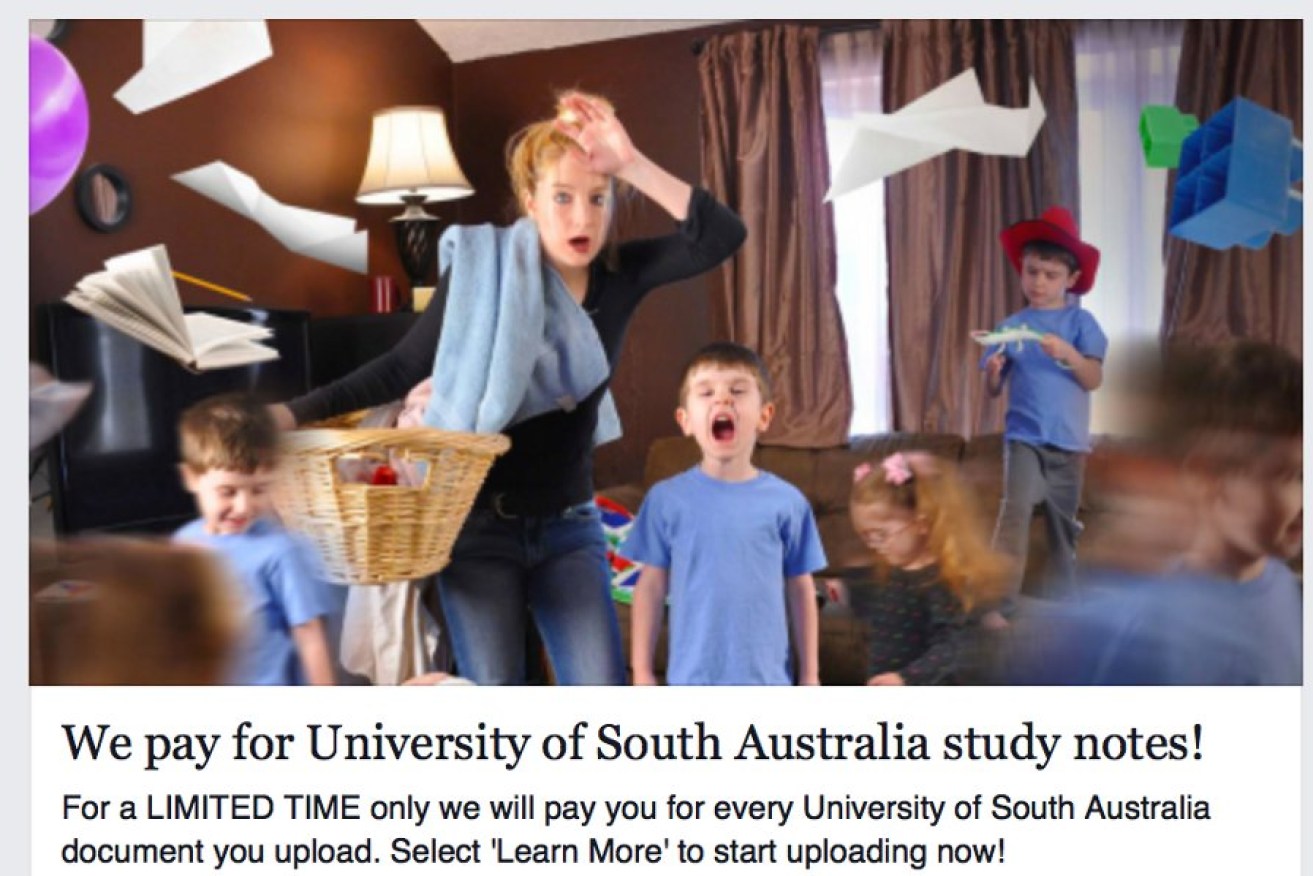SA students targeted by assignment-selling site


One of the website's paid advertisements on Facebook.
A website which allows students to buy and sell used academic assignments is moving to target South Australian universities.
Dozens of students from Adelaide University, Flinders University and UniSA have already responded to a newly-minted social media advertising campaign by Thinkswap.com by selling academic work to the site at up to $15 per assignment.
That money is converted into ‘exchange credits’ online, which can later be used to purchase other students’ work. Students can also buy access to other students’ work without providing their own.
Thinkswap was popularised in New South Wales, where there is ongoing concern the site may facilitate plagiarism.
However, Thinkswap founder Adam Fasullo insists the site does not support plagiarism, and that the content traded could only be used “for referencing purposes”.
“When people first look at the site, the first impression they have is that this is a site where somebody would come who wants their assignment done without having to do any work,” he said.
“We never answer any questions for students that have been put forward for this current semester.
“The questions put forward for assignments change continuously (for) almost every subject.”
Fasullo said the content being shared was more like “worked solutions sheets”, similar to what may be found in any textbook, and most of it would require students to “work backwards” from answers not directly relevant to current semesters.
He said all content was watermarked, and much of it vulnerable to plagiarism-spotting software such as TurnItIn.
“If their intention is to plagiarise there’s a significant amount of work involved in doing that,” he said.
“That person’s responsibility is … to understand that that’s the wrong thing to do and that if they are looking for a way of doing that then they’re always going to be caught.”
Fasullo said the site had spent around $200 to purchase approximately 80 sets of notes and assignments from South Australian university students so far, but he expected the business would spend several thousand dollars to built a critical mass of content, so that students can begin regularly and “organically” trading.
Thinkswap also hosts content from high school students in New South Wales, but Fasulo said the business case for that service was not yet established enough to offer the service in other states.
Each of the SA universities whose students are being targeted by Thinkswap told InDaily their anti-plagiarism policies and software were adequate to prevent Thinkswap content being used as original work.
“The University of Adelaide takes plagiarism and cheating very seriously,” said Adelaide University Academic Board member Professor Clem Macintyre.
“Penalties include: being given zero marks for assignments or exams, and not being allowed to resubmit or resit the exam; a fail grade for the subject in which the student has plagiarised or cheated, or a significant reduction to their grade.
“Dated material is generally of very limited use and past lecture notes are unlikely to assist especially if it is of dubious quality.”
UniSA Pro Vice Chancellor Laura-Anne Bull said Thinkswap “is merely translating into the online environment what students have always done – shared notes, looked at previous exam papers, sourced new ideas from a wide range of sources to support their learning”.
“I believe that is one of the great aspects of studying at university, not only do you learn in the classroom, but you learn from comparing your thoughts and understandings with those of others,” she said.
“… there are rules around plagiarism and cheating which UniSA emphasises through a strong educative process when students attend University.
“We do not formally endorse these sharing sites or have any relationship with them.”
Flinders University Deputy Vice-Chancellor (Academic) Professor Andrew Parkin said the university was “proactive in addressing the potential problems of plagiarism and cheating, which undermine academic integrity”.
“A key tool has been the development of a University web-site and other materials for new students that provide information on academic integrity.”




